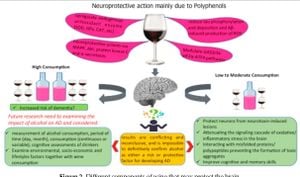New Zealand is embarking on a quest for economic prosperity, tapping deep cultural roots and innovative strategies to connect with the booming Asian markets. Recent discussions surrounding the integration of tikanga Māori, or Māori customs and values, have emerged as pivotal to cementing this ambition.
The Asian markets are not just any point of interest; they are seen as linchpins of economic success for New Zealand. A significant predictor for this is Asia’s projected contribution to global Gross Domestic Product (GDP) growth, which is expected to account for about 60% by 2024, bolstered by powerhouses like India and China. This means there's both urgency and opportunity for countries like New Zealand to up their game.
Statistics reveal the proximity of New Zealand's exports to Asian nations. Among its top ten markets, seven are situated within Asia, with exports to China swelling to NZ$20 billion and to India reaching around $520 million last year. These numbers signify not just trade figures but potential partnerships waiting to be explored.
According to research from Lincoln University's Hafsa Ahmed, the cultural distance between Māori practices and Asian communities is relatively narrow compared to the distance from Anglo-American cultures. The shared core values of mana (honour/prestige), manaakitanga (reciprocity/hospitality), karakia (prayer), and whakapapa (genealogy) could provide common ground. For example, manaakitanga resonates deeply across many Asian cultures, echoing ancient Sanskrit notions of hospitality. This suggests New Zealand might resonate well with Asian partners by authentically embracing these values, effectively reducing cultural barriers.
A myriad of industries could benefit significantly from this growing relationship. The government’s focus on freshwater reform highlights the pressing need to prioritize local vegetable production. A forthcoming report by the New Zealand Institute of Economic Research warns of skyrocketing consumer prices, potentially reaching $9 for broccoli, should vegetable production not be deemed of national significance. With 80% of vegetables grown for domestic consumption, it’s clear why local farming holds the anchor for not just food supply but for overall economic wellbeing.
Small farmers and growers are raising their voices. They argue the government must secure the vegetable sector’s place within new freshwater regulations, which are currently under review as part of reforms to the Resource Management Act. This unification of local agricultural priorities and global trade goals is echoed by industry representatives, emphasizing the interconnectedness of sustaining local supply chains and entering international markets.
All the discussions of cultural similarities and governmental responsiveness are set against the backdrop of what the future could hold for New Zealand. Companies are already making moves, reallocatively, establishing entire production lines, including packhouses and factories, as market needs shift. Just recently, there have been significant calls for supporting Māori businesses to not only enter Asian markets but thrive within them.
For many industry insiders, it’s not just about the value of trade; it’s about forging genuine connections. Collaboration and representation are increasingly found as key components to ensuring Māori perspectives are integrated meaningfully within international diplomatic efforts. This might involve adapting decision-making processes to include Māori values, which advocate for the wellbeing of whānau (families) and communities.
With the right measures taken, New Zealand could do more than just engage with Asia; it could emerge as the cultural and economic bridge between the West and East, allowing for mutual growth and unearthing shared opportunities. What remains to be seen is how these dialogues will translate to policy and practice paving the way for future prosperity.
People highlight the need for the New Zealand government’s alignment with Te Tiriti o Waitangi (Treaty of Waitangi) principles, to bring to the forefront the historical relationship between Māori and the Crown. A cohesive approach could aid progress, but the current political atmosphere, shaped by the center-right coalition government, makes this alignment challenging.
Nevertheless, some innovative thinkers propose crafting unique roles within diplomacy focused on Māori engagements with Asia, creating avenues for conducting business and trade with cultural appreciation and respect as their backbone. The economic potential is ripe; tapping the Kiwi ingenuity and resilience, paired with authentic cultural values could lay the foundation for future economic stability and growth for New Zealand.
Taking lessons from global wealth centers—like Singapore and Switzerland—New Zealand already stands on solid ground. It's praised for its low levels of corruption and remarkable stability, giving it the upper hand when attracting international investments. By tweaking its frameworks and promoting its cultural uniqueness, the nation not only enhances its appeal but also builds strong relationships, promoting interchanges across sectors—from agriculture to technology.
Consequently, focusing on local cultivation and value generation appears to be the way forward as New Zealand navigates potential economic waters. Efforts will likely center around adhering to international standards and promoting practices grounded within the local cultural epistemology.
While on one hand this highlights the challenges faced, it equally serves to reveal the immense potential within such collaborations. New Zealand is uniquely positioned to leverage its indigenous wisdom alongside modern economic frameworks. The cultural undercurrents could be tapped to secure its space within burgeoning Asian economies, delivering economic boons coupled with enhanced cultural exchanges.”



